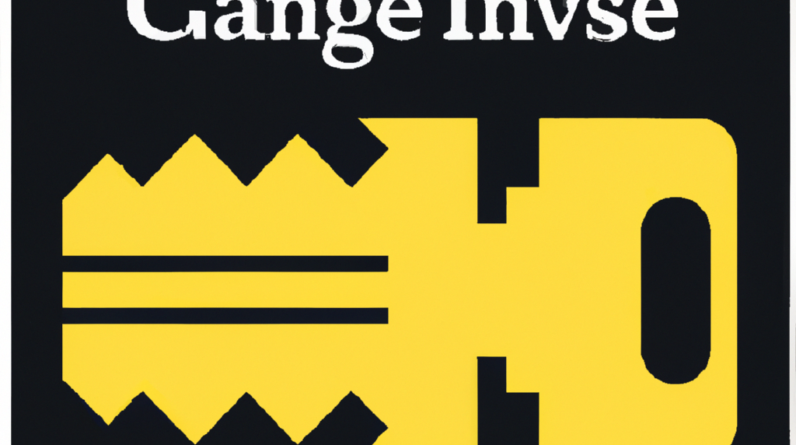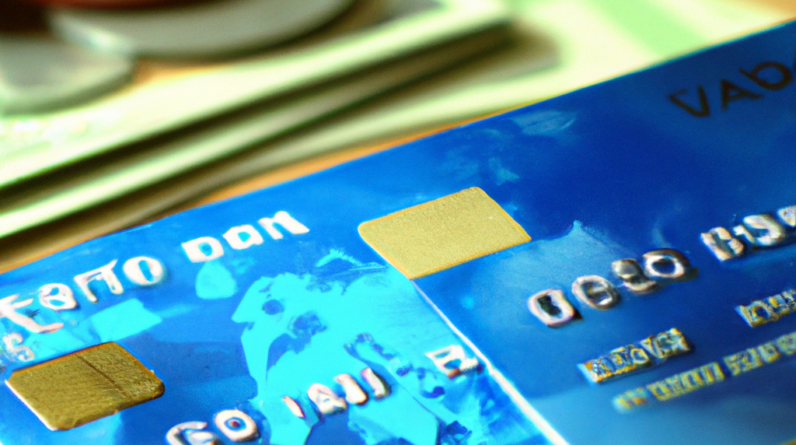
So you’ve heard about credit relief scams, huh? Well, let me tell you, it’s definitely something you need to be aware of. These sneaky scams are designed to prey on people who are in a tough financial situation and desperate for help. They promise to magically erase your debt or improve your credit score, but in reality, they’re just out to make a quick buck at your expense. It’s a shame that there are people out there who try to take advantage of others in vulnerable situations, but luckily, there are ways to protect yourself.
In our article, you’ll learn more about the different types of credit relief scams and how to spot them. We’ll tell you about the red flags to look out for and the steps you can take to avoid falling victim to these scams. Knowledge is power, and arming yourself with information is the best defense against these scammers. So keep reading and we’ll help you stay safe and secure in your financial journey.

This image is property of pixabay.com.
Understanding Credit Relief Scams
Credit relief scams are schemes that prey on individuals who are struggling with debt and financial difficulties. These scams promise to provide quick and easy solutions to alleviate debt burdens, repair credit scores, and offer financial relief. However, instead of delivering on their promises, these fraudulent schemes often leave victims in even more dire financial situations. It is important to understand the common types of credit relief scams, recognize the warning signs, and protect yourself from falling victim to these scams.
What are Credit Relief Scams?
Credit relief scams are deceptive practices that target individuals seeking assistance with their financial troubles. These scams exploit the vulnerability and desperation of individuals who are burdened by debt and promise them unrealistic solutions for a fee. Some common types of credit relief scams include debt settlement scams, credit repair scams, identity theft scams, and phishing scams.
Common Types of Credit Relief Scams
Debt Settlement Scams
Debt settlement scams claim to negotiate with creditors on behalf of individuals to reduce their debt amount. These scams often involve requesting upfront fees and promising to settle debts for significantly less than what is owed. However, in reality, these scammers often fail to deliver on their promises, leaving individuals with unpaid debts, damaged credit scores, and no recourse for legal action.
Credit Repair Scams
Credit repair scams prey on individuals with poor credit scores and promise to improve their credit ratings quickly and effortlessly. These scams often make false claims of being able to remove negative information from credit reports, create new credit identities, or provide illegal shortcuts to improve credit scores. In reality, the services offered by these scammers are ineffective, and individuals may end up paying large fees without seeing any improvement in their credit.
Identity Theft Scams
Identity theft scams involve fraudsters stealing personal information and using it to open fraudulent lines of credit or commit other financial crimes in an individual’s name. These scammers may promise to help victims recover their stolen identities and repair the damage caused. However, instead of providing assistance, they may actually be seeking to collect even more personal information to further exploit the victim.
Phishing Scams
Phishing scams involve scammers posing as legitimate organizations, such as banks or credit card companies, to trick individuals into revealing their personal and financial information. These scams often come in the form of unsolicited emails or phone calls, and the scammers employ various tactics, such as urgency or threats, to manipulate victims into disclosing sensitive data. Once scammers obtain this information, they can use it to commit identity theft or fraudulent financial activities.
Signs of a Credit Relief Scam
Recognizing the warning signs of a credit relief scam can help individuals avoid falling victim to these fraudulent schemes. Some common signs to watch out for include:
Unrealistic Promises
Credit relief scams often make exaggerated claims and guarantees that sound too good to be true. Beware of any promises to eliminate all debt, improve credit scores overnight, or provide a secret method to financial success. Legitimate credit relief services understand that managing debt and improving credit takes time and effort.
Upfront Fees
Legitimate credit relief companies typically only charge fees once they have delivered on their promised services. If a company requires upfront payment before any work is done, it is a red flag. Be cautious of requests for large upfront fees or payments that seem disproportionate to the services being offered.
Unsolicited Calls or Emails
Receiving unsolicited calls or emails promoting credit relief services is often a sign of a scam. Legitimate organizations will not contact individuals out of the blue to offer their services. Be wary of any communication that requires immediate action or tries to create a sense of urgency.
Pressure Tactics
Scammers often use high-pressure tactics to push individuals into making quick decisions. They may claim that an opportunity is limited or that immediate action is required. Legitimate credit relief organizations understand the importance of informed decision-making and will not use pressure to force individuals into choosing their services.
Lack of Transparency
Legitimate credit relief companies will be transparent about their services, fees, and the potential outcomes of their programs. If a company avoids providing clear information, fails to disclose important details, or refuses to answer questions, it is likely a scam.

This image is property of pixabay.com.
Popular Credit Relief Scams
Debt Settlement Scams
Debt settlement scams promise to negotiate with creditors to reduce the amount of debt owed. However, these scams often fail to deliver the promised results, leaving individuals with unsettled debts and damaged credit scores.
Credit Repair Scams
Credit repair scams claim to fix individuals’ credit ratings by removing negative information from their credit reports. However, these scams often engage in illegal activities, provide ineffective services, or use deceptive tactics that can lead to further financial damage.
Identity Theft Scams
Identity theft scams involve fraudsters stealing personal information to commit financial crimes in someone’s name. These scams can result in significant financial losses, damaged credit, and the need for extensive recovery efforts to restore one’s identity.
Phishing Scams
Phishing scams use deceptive tactics to trick individuals into revealing personal and financial information. Scammers may impersonate legitimate organizations and send emails or make phone calls requesting sensitive data. Falling victim to phishing scams can lead to identity theft and fraudulent financial activities.
Consequences of Falling Victim
Falling victim to a credit relief scam can have severe consequences for individuals. Some of the potential outcomes include:
Financial Losses
Credit relief scams often require upfront fees or payments for their services. When individuals fall victim to these scams, they may lose significant amounts of money without receiving any relief or benefit in return. These financial losses can exacerbate existing debt burdens and create further financial hardships.
Damage to Credit Score
Credit relief scams can also cause significant damage to an individual’s credit score. False promises of improving credit scores or removing negative information can result in wasted time and money, while the individual’s credit remains unchanged or even deteriorates further.
Legal Troubles
Engaging with fraudulent credit relief services can also expose individuals to legal troubles. If these scams engage in illegal activities, individuals may unknowingly become accomplices to fraud or other financial crimes. Being associated with fraudulent activities can lead to legal investigations and potential legal consequences.
Emotional Distress
Falling victim to a credit relief scam can cause emotional distress. The stress of being in debt and seeking relief, combined with the disappointment and betrayal of being scammed, can have a significant impact on an individual’s mental well-being. The emotional toll of these scams can be long-lasting and affect an individual’s overall quality of life.

This image is property of pixabay.com.
Protecting Yourself from Credit Relief Scams
To protect yourself from credit relief scams, it is essential to take proactive measures and exercise caution when seeking financial assistance. Here are some steps you can take:
Research and Verify Companies
Before engaging with any credit relief company, thoroughly research their credentials, reputation, and track record. Look for independent reviews and ratings from reputable sources to gauge their legitimacy. Verify the company’s contact information and physical address to ensure they are not operating under false pretenses.
Read Reviews and Complaints
Reading reviews and complaints from other consumers can provide valuable insights into the experiences and outcomes of dealing with specific credit relief companies. Look for patterns of complaints, lawsuits, or regulatory actions against the company. Avoid companies with a history of negative feedback or unresolved complaints.
Check Accreditation and Licensing
Legitimate credit relief companies often have accreditations and certifications from recognized industry organizations. Verify if the company is a member of reputable associations or regulatory bodies. Additionally, check if the company holds the necessary licenses to operate in your jurisdiction.
Beware of High-Pressure Sales Tactics
Legitimate credit relief companies will not pressure you into making hasty decisions. Be cautious of any company that uses high-pressure sales tactics or creates a sense of urgency to push you into signing up for their services. Take the time to carefully evaluate and consider all options before making a decision.
Guard Personal Information
Protect your personal and financial information by being cautious about sharing it with unknown or unverified sources. Be particularly wary of unsolicited emails or phone calls requesting sensitive data. Legitimate organizations will not ask for personal information over the phone or via email unless you initiate contact.
Reporting Credit Relief Scams
If you believe you have been targeted or fallen victim to a credit relief scam, it is crucial to report the incident to the appropriate authorities and organizations. Some reporting options include:
Federal Trade Commission (FTC)
The FTC is a federal agency that works to protect consumers from fraudulent practices. File a complaint with the FTC through their website or by calling their toll-free hotline.
Consumer Financial Protection Bureau (CFPB)
The CFPB is another federal agency that regulates financial products and services. Submit a complaint to the CFPB online or by phone to report credit relief scams or other financial fraud.
State Attorney General Offices
Many states have Attorney General Offices that handle consumer protection and fraud-related complaints. Contact your state’s Attorney General Office to report credit relief scams and seek assistance.
Local Law Enforcement
If you believe you have fallen victim to a credit relief scam and have evidence of fraudulent activities, contact your local law enforcement agency to file a report. They may be able to investigate the matter and take appropriate legal action against the scammers.

Legal Actions and Regulations
Several laws and regulations exist to protect consumers from credit relief scams and other fraudulent practices. Some key legal actions and regulations that address these scams include:
The Telemarketing Sales Rule (TSR)
The TSR prohibits deceptive telemarketing practices, including those related to credit relief services. It requires telemarketers to provide specific disclosures, obtain written agreements before charging any fees, and prohibits upfront payments for debt relief services.
Fair Credit Reporting Act (FCRA)
The FCRA regulates credit reporting agencies and protects consumers from inaccurate or unfair credit reporting. It gives individuals the right to dispute incorrect information on their credit reports and requires companies to investigate and correct any errors.
Consumer Fraud and Deceptive Business Practices Act
Many states have laws that specifically target consumer fraud and deceptive business practices. These laws provide consumers with rights and remedies in cases of fraud, including credit relief scams.
Consumer Protection Lawsuits
Individuals who have been scammed by credit relief companies may have the option to seek legal recourse through consumer protection lawsuits. Consult with an attorney who specializes in consumer protection to evaluate your options and determine if legal action is appropriate.
Educating Others and Raising Awareness
In addition to protecting yourself from credit relief scams, it is important to educate others and raise awareness about these fraudulent practices. By sharing information and experiences, you can help others avoid falling victim to these scams. Some ways to educate and raise awareness include:
Share Information with Friends and Family
Inform your friends, family, and acquaintances about the warning signs and tactics used in credit relief scams. Encourage them to research and verify any credit relief company they consider engaging with and share the steps they can take to protect themselves.
Alert Social Media Platforms
If you encounter credit relief scams or fraudulent ads on social media platforms, report them to the platform administrators. This helps remove the scams from circulation and protect other users from falling victim.
Participate in Community Events
Participate in local community events or workshops that focus on financial literacy and consumer protection. Share your experiences and insights to help others become more informed and vigilant about credit relief scams.
Contact Local News Outlets
Reach out to local news outlets, both print and digital, to share your story and raise awareness about credit relief scams. News outlets often have resources and platforms to inform and educate the public about fraudulent practices.

Recovering from Credit Relief Scams
If you have fallen victim to a credit relief scam, it is important to take immediate action to minimize the damage and begin the recovery process. Here are some steps you can take:
Freezing Credit Reports
Contact the major credit reporting agencies and request a freeze on your credit reports. This prevents scammers from opening new lines of credit or committing further identity theft in your name.
Disputing Fraudulent Charges
If you have been charged fraudulent fees or payments by a credit relief scam, contact your credit card issuer or bank to dispute these charges. Provide evidence of the scam and work with them to reverse the charges and protect your financial accounts.
Seeking Professional Advice
Consult with a financial advisor or credit counseling agency to get professional advice on how to recover from the scam and manage your financial situation effectively. They can guide you through the steps you need to take to rebuild your credit and regain control of your finances.
Rebuilding Credit
Rebuilding your credit after falling victim to a credit relief scam may take time and effort. Focus on making timely payments, reducing debt, and maintaining a positive credit history. Regularly monitor your credit reports and address any errors or inconsistencies promptly.
Conclusion
In conclusion, credit relief scams can have devastating consequences for individuals seeking financial assistance. It is essential to understand the common types of scams, recognize the warning signs, and take proactive measures to protect yourself from falling victim to these fraudulent practices. By staying informed, educating others, and reporting scams, we can work towards a more secure financial future and safeguard ourselves from the detrimental effects of credit relief scams.







